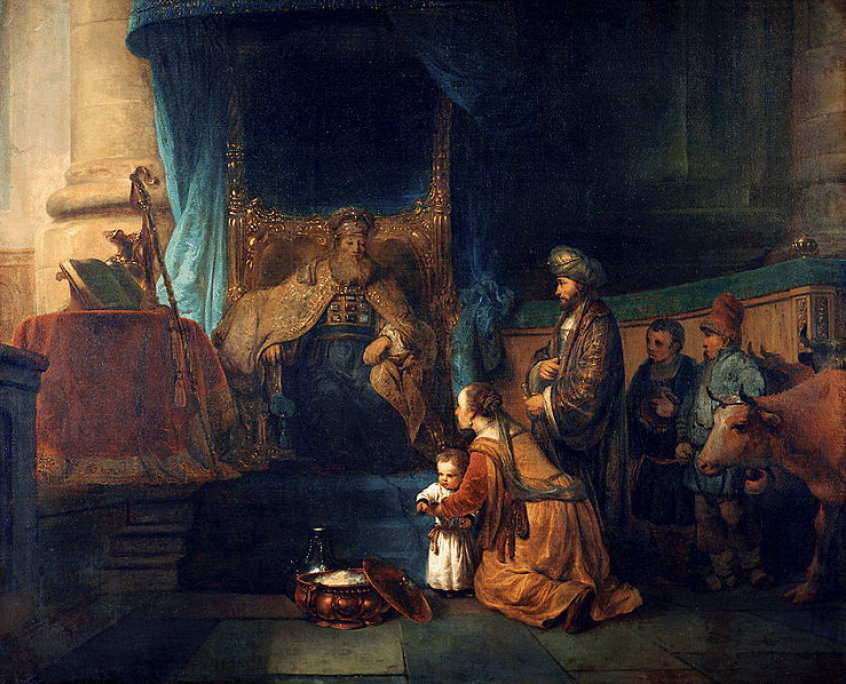Hannah – wife of Elkanah and mother to Samuel – lived for years with unfulfilled promises, yet never failed to turn to God. Her story is found in the books of Samuel.

At a time when polygamy was commonplace, Hannah was the first wife of Elkanah. Though she longed to be a mother, she was barren while her husband's second wife, Peninnah, had many children. Peninnah would mock Hannah for her failure to conceive.
But despite her hardships, Hannah remained faithful to the Lord, never losing trust in his sovereignty or faithfulness. She would petition him for a son so desperately that one time Eli – the priest – mistook her for a drunk. She even said that if God blessed her with a child, she would dedicate him to God, giving him back.
God, ever faithful, responded to her plea, and Hannah became pregnant. She, too, was faithful to God and kept her word, offering her first born Samuel back to the Lord when he was weaned.
So what can we learn from this woman of God?
1. Perseverance in prayer
Hannah prayed beyond the point when it was reasonable to pray. She was persisent in prayer, going to the Tabernacle to pray and weep before the Lord. She was honest before him, not hiding that she longed for a son, but rather putting her desires before God. Even when her circumstances didn't show God's faithfulness, she chose to believe that he was.
She continued to wail before Eli the priest, even after he mistook her for being drunk. Rather than apologising, she simply said: "I have been praying here out of my great anguish and grief". She was dedicated to the Lord above her own dignity.
As she persevered, Eli realised that Hannah was sincere, and responded saying: "May the God of Israel grant the request you have asked of him".
From despair came joy, as her petition was accepted.
Life is often lived in the space between hopes and their fulfillment. It can be tempting to give up, but – as with Hannah – when we persevere in prayer there can be break through.
2. The art of thanksgiving
When Hannah was given a son, she remained true to the vow she made to God: "O Lord Almighty, if you will look down upon my sorrows and answer my prayer and give me a son, then I will give him back to you."
After she weaned Samuel, she gave him back to the Lord, putting him under Eli's care.
Just as she said in her prayer of thanksgiving: "The Lord kills and makes alive; He brings down to the grave and brings up".
How often do we pray for things, and when we receive them, forget that it was a gift from God? It's so easy to pray to God in the tough times, but then turn away from him and act like it was all our own doing when he blesses us.
3. The value God gives to women
Through Hannah's petitionary prayer and her courage in handing her son over to the Lord, Samuel was born and raised to be a prophet of God, a judge and a leader of Israel.
Her prayers had power – both those she said in private and the prayer recorded in 1 Samuel 2:1-10. This prayer was the basis of the one Mary, mother of Jesus, spoke in Luke 1:46-55 and speaks of God's power, holiness, knowledge, majesty and grace.
"My heart exults in the Lord; my horn is exalted in the Lord. My mouth derides my enemies,
because I rejoice in your salvation.
There is none holy like the Lord:
for there is none besides you;
there is no rock like our God.
Talk no more so very proudly,
let not arrogance come from your mouth;
for the Lord is a God of knowledge,
and by him actions are weighed.
The bows of the mighty are broken,
but the feeble bind on strength.
Those who were full have hired themselves out for bread,
but those who were hungry have ceased to hunger.
The barren has borne seven,
but she who has many children is forlorn.
The Lord kills and brings to life;
he brings down to Sheol and raises up.
The Lord makes poor and makes rich;
he brings low and he exalts.
He raises up the poor from the dust;
he lifts the needy from the ash heap
to make them sit with princes
and inherit a seat of honor.
For the pillars of the earth are the Lord's,
and on them he has set the world.
He will guard the feet of his faithful ones,
but the wicked shall be cut off in darkness,
for not by might shall a man prevail.
The adversaries of the Lord shall be broken to pieces;
against them he will thunder in heaven.
The Lord will judge the ends of the earth;
he will give strength to his king
and exalt the horn of his anointed."
God uses women to minister to people, and Hannah's life of long-suffering faithfulness is an example of a life lived in relationship to God, trusting his character whatever the cost.













